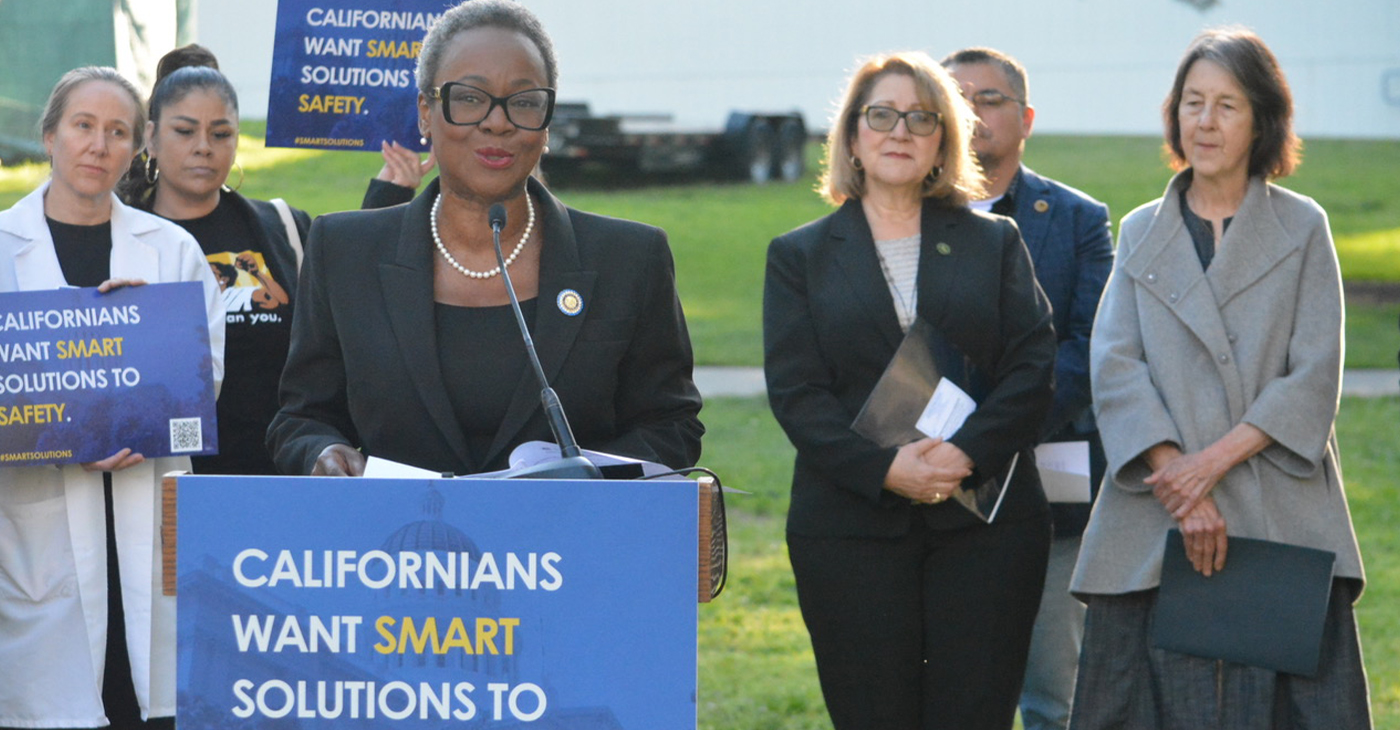Health
Ebola Doctor: Media, Politicians Fueled the Public’s Fear

In this Nov. 11, 2014, file photo, Dr. Craig Spencer, who was the first Ebola patient in New York City, listens to comments during a news conference at New York’s Bellevue Hospital. (AP Photo/Richard Drew, File)
TOM McELROY, Associated Press
NEW YORK (AP) — A doctor who contracted the deadly Ebola virus and rode the subway system and dined out before he developed symptoms said the media and politicians could have done a better job by educating people on the science of it instead of focusing on their fears.
“When we look back on this epidemic, I hope we’ll recognize that fear caused our initial hesitance to respond — and caused us to respond poorly when we finally did,” Dr. Craig Spencer wrote in an article published Wednesday in The New England Journal of Medicine.
Spencer, an emergency room physician, was diagnosed with Ebola on Oct. 23, days after returning from treating patients in Guinea with Doctors Without Borders. His was the first Ebola case in the nation’s largest city, spurring an effort to contain anxieties along with the virus. He was treated at a hospital, recovered and was released on Nov. 11.
News of Spencer’s infection unnerved some New York residents, particularly after they learned that he rode the subway system, ate out and went bowling in the days before he developed a fever and tested positive.
Spencer said little attention was devoted to the fact the science of disease transmission and the experience of previous Ebola outbreaks suggested it was “nearly impossible for me to have transmitted the virus before I had a fever.”
“Meanwhile, politicians, caught up in the election season, took advantage of the panic to try to appear presidential instead of supporting a sound, science-based public health response,” he said.
After Spencer’s diagnosis, New York Gov. Andrew Cuomo and New Jersey Gov. Chris Christie announced mandatory 21-day quarantines for travelers who have come in close contact with Ebola, which has infected more than 14,000 people in West Africa and has killed more than 5,000.
Cuomo and Christie called federal health guidelines inadequate when they announced their quarantine plans.
But the governors, Spencer said, did not “sufficiently consider the unintended side effects.”
The threat of quarantine may cause sick people to defer seeking treatment or cause health care responders returning from affected countries to “alter their travel plans or misreport their exposure to avoid quarantine,” said Spencer, whose treatment included a transfusion of blood plasma from another Ebola survivor.
“We all lose when we allow irrational fear, fueled in part by prime-time ratings and political expediency, to supersede pragmatic public health preparedness,” Spencer wrote.
Copyright 2015 The Associated Press. All rights reserved. This material may not be published, broadcast, rewritten or redistributed.
Antonio Ray Harvey
Sacramento Lawmakers Step Up Push for “Smart Solutions” on Crime, Public Safety
Assemblymember Tina McKinnor (D-Inglewood) and Sen. Lola Smallwood-Cuevas (D-Ladera Heights), both members of the California Legislative Black Caucus (CLBC), have joined other lawmakers and criminal justice reform advocates to address public safety in the state. On April 2, CLBC members gathered outside the State Capitol for the unveiling of the #SmartSolutions Public Safety Policy Platform, a package of 30 bills that addresses the top concerns of retailers, retail workers, the fentanyl crisis, and support for victims and survivors of crime.

By Antonio Ray Harvey, California Black Media
Assemblymember Tina McKinnor (D-Inglewood) and Sen. Lola Smallwood-Cuevas (D-Ladera Heights), both members of the California Legislative Black Caucus (CLBC), have joined other lawmakers and criminal justice reform advocates to address public safety in the state.
On April 2, CLBC members gathered outside the State Capitol for the unveiling of the #SmartSolutions Public Safety Policy Platform, a package of 30 bills that addresses the top concerns of retailers, retail workers, the fentanyl crisis, and support for victims and survivors of crime.
“Instead of being tough on crime, we need to be smart on crime,” Smallwood said at the press briefing. “I am not saying that we’re not going to be holding folks accountable for the actions that they take. But we will not rely on incarceration as a solution.”
McKinnor, Smallwood-Cuevas, a coalition of advocates, addiction treatment experts, and Yurok Tribal leaders joined Sen. Nancy Skinner (D-Berkeley), and Assemblymember Eloise Gómez Reyes (D-Colton) at the press conference organized to promote legislative solutions that ensure safety and justice.
Organizers say #SmartSolutions is an intersectional campaign that combats criminalization and mass incarceration by pushing for the redirection of state resources to fund housing, health care, schools, services for victims, and programs that reduce recidivism and promote accountability, beyond incarceration.
Opponents of the bills proposed in the #SmartSolutions campaign say their colleagues who support reform-focused strategies are looking the other way on crime and encouraging lawlessness.
For example, Assemblymembers Wendy Carillo (D-Boyle Heights), Carlos Villapudua (D-Stockton) and Mike Gipson (D-Carson) are supporting Assembly Bill (AB) 1990, legislation that would allow a peace officer to arrest shoplifters without a warrant or without witnessing the theft.
Assemblymember James Ramos (D-Highland) authored AB 1772 and introduced it in January. The legislation proposes sterner penalties for retail theft, particularly for repeat offenders.
The #SmartSolutions campaign is co-sponsored by Ella Baker Center for Human Rights, Smart Justice California, American Civil Liberties Union (ACLU) California Action, Californians for Safety and Justice, and Californians United for a Responsible Budget (CURB).
Smallwood recently introduced two bills she hopes will provide solutions to the escalating retail theft problem in the state. Senate Bill (SB) 1446 addresses theft, technology and job security in retail establishments and aims to minimize workplace violence, according to supporters. SB 1282 requires counties to expand the use of a diversion program for theft cases.
“Restorative Justice is the essential pillar of making our criminal justice system more fair, just, and equitable,” McKinnor said. “Restorative justice recognizes the trauma of victims and preparatory of crimes and provides a constructive space for victims to find healing.”
Dr. Amiee Moulin, founder of the California Bridge program and chief of the Division of Addiction Medicine at the University of California (UC) Medical Center, said drug “addiction and overdose” are taking a toll on patients, families and the community.
“I believe that California’s proposed legislation focused on expanding access to treatment is a crucial step towards saving lives,” Moulin said. “By removing barriers to care and embracing evidenced-based strategies we can provide patients the support they need to heal and recover.”
California Black Media
Stakeholders Warn Lawmakers of Expanding Aging Population; Older Black Californians Included
The California Commission on Aging (CCoA) hosted its second annual forum focused on challenges facing Californians over 65 years old. Titled “Aging and Disability Issues: What Legislative Staff Need to Know for 2024,” the virtual event was organized to bring awareness to lawmakers that California’s aging adults are living longer and to emphasize the importance of developing policy to support this growing population, according to organizers.

By Antonio Ray Harvey, California Black Media
The California Commission on Aging (CCoA) hosted its second annual forum focused on challenges facing Californians over 65 years old.
Titled “Aging and Disability Issues: What Legislative Staff Need to Know for 2024,” the virtual event was organized to bring awareness to lawmakers that California’s aging adults are living longer and to emphasize the importance of developing policy to support this growing population, according to organizers.
This year’s meeting included the perspectives of gerontologists and other subject-matter experts who provided data and insights critical to informing policy.
Former Assemblymember Cheryl Brown (D-San Bernardino), who chairs the CCoA’s Executive Committee, began the discussion.
“The landscape of California is changing. Aging is changing and it’s changing California,” Brown said. “Older adults are living longer, and the cohort is becoming more ethnically diverse, underscoring the need to develop culturally, appropriate services.”
The discussion encompassed a range of topics including planning for long-term care, assisted living, enhancing healthcare quality, technology use, services for senior adults with disabilities, state budget considerations, and the best policies and practices to help aging adults stay healthy, active, independent, and confident.
The CCoA acts as the principal advocate for older Californians and as a catalyst for change that supports and celebrates Californians as they advance in age. The CCoA advises the Governor and Legislature, along with state, federal, and local agencies on programs and services that affect senior adults.
Statewide organizations that participated in the event included LeadingAge California, Disability Rights California, California Foundation for Independent Living Centers, and California Collaborative for Long-Term Services and Supports.
In addition, representatives and staff members of Choice In Aging, Age Watch Newsletter, California Elder Justice Coalition, California Association of Area Agencies on Aging, and the California Long-Term Care Ombudsman Association were presenters during the 90-minute discussion.
“In California, we know that older adults are underserved and unserved relative to their needs,” CCoA Executive Director Karol Swartzlander said. “In stark terms, we know that 4% of older adults who need service actually receive services.”
According to the California Department of Aging (CDA), California’s aging population is expected to reach an estimated 4.5 million individuals ages 60 to 69 and 4.2 million senior adults ages 70- to 79 by the year 2040, based on information from CDA’s Master Plan for Aging.
Recognizing that the state’s 65-plus population is projected to grow to 8.6 million by 2030, Gov. Gavin Newsom issued an executive order calling for the development of the MPA.
Debbie Toth, from ChoiceInAging, said the MPA is a model of “how we can do better” to service the needs of older adults. ChoiceInAging, Toth said, “is going to be shopping accessible transportation and rate increases for adult day healthcare.
“But we need to have legislation to do it,” Toth told legislative staff members.
A 2016 California Health Report (CHR) revealed that by 2030, 18% of the state will be 65 or older. Projections in that study also indicated that 52% of these older adults would be from diverse minority groups but “no population is expected to be harder hit than African Americans,” the report stated.
California Black Media
Asm. Akilah Weber Introduces Bill to Protect Terminally Ill Californians
On Feb. 7, Assemblymember Akilah Weber (D-La Mesa) introduced legislation, Assembly Bill (AB) 2180, designed to ensure that terminally or chronically ill people living in California can afford their life-saving medications.
If passed, the law would require California health plan providers, insurers and pharmacy benefit managers (PBMs) to count the value of financial assistance provided by subsidy programs towards a terminally ill patient’s deductible and out-of-pocket expenses.

By California Black Media
On Feb. 7, Assemblymember Akilah Weber (D-La Mesa) introduced legislation, Assembly Bill (AB) 2180, designed to ensure that terminally or chronically ill people living in California can afford their life-saving medications.
If passed, the law would require California health plan providers, insurers and pharmacy benefit managers (PBMs) to count the value of financial assistance provided by subsidy programs towards a terminally ill patient’s deductible and out-of-pocket expenses.
“When insurers and PBMs do onto count the value of copay assistance toward cost-sharing requirements, patients often experience “a copay surprise” at the pharmacy counter and may be forced to walk away without their needed medication because they cannot afford it,” wrote Weber in a statement.
Over 80 patient advocacy organizations, medical foundations and other groups applauded Weber for introducing the legislation.
“The All Copays Count in California Coalition commends Dr. Weber for championing legislation that will improve patient access to medications and protect the most vulnerable Californians from harmful and deceptive insurance schemes that raise patient costs,” said Lynne Kinst, Executive Director of Hemophilia Council of California (HCC), which is a cosponsor of the bill.
According to the HCC, an estimated 70% of patients “abandon their prescription medications when their out-of-pocket costs reach $250 or more.
-

 Activism4 weeks ago
Activism4 weeks agoOakland Post: Week of March 20 – 26, 2024
-

 #NNPA BlackPress3 weeks ago
#NNPA BlackPress3 weeks agoCOMMENTARY: D.C. Crime Bill Fails to Address Root Causes of Violence and Incarceration
-

 #NNPA BlackPress3 weeks ago
#NNPA BlackPress3 weeks agoMayor, City Council President React to May 31 Closing of Birmingham-Southern College
-

 #NNPA BlackPress3 weeks ago
#NNPA BlackPress3 weeks agoFrom Raids to Revelations: The Dark Turn in Sean ‘Diddy’ Combs’ Saga
-

 #NNPA BlackPress3 weeks ago
#NNPA BlackPress3 weeks agoCOMMENTARY: Lady Day and The Lights!
-

 #NNPA BlackPress3 weeks ago
#NNPA BlackPress3 weeks agoBaltimore Key Bridge Catastrophe: A City’s Heartbreak and a Nation’s Alarm
-

 #NNPA BlackPress3 weeks ago
#NNPA BlackPress3 weeks agoBaltimore’s Key Bridge Struck by Ship, Collapses into Water
-

 Activism3 weeks ago
Activism3 weeks agoOakland Post: Week of March 27 – April 2, 2024










































